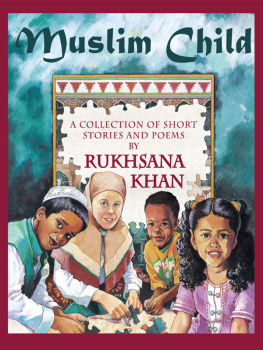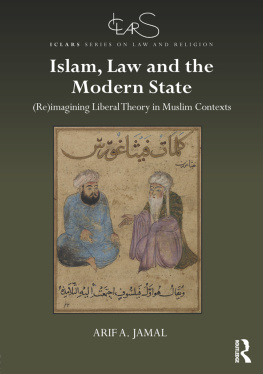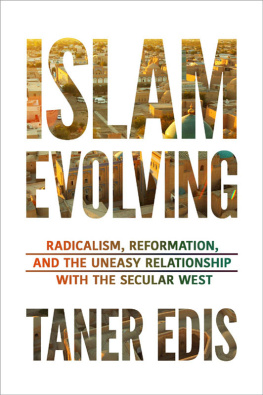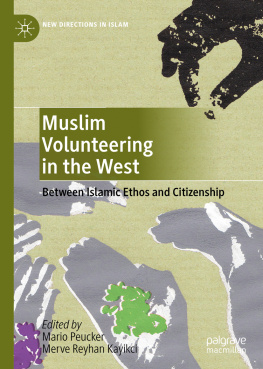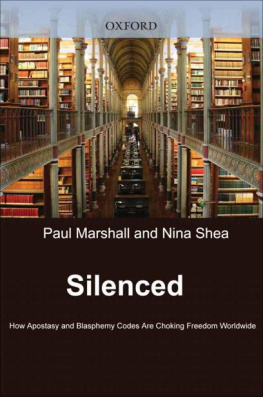Cinema in Muslim Societies
This book collates a comprehensive range of fascinating essays by leading authors on film from across the Muslim world. Responding to political and theoretical misconceptions about Islam and Muslim culture, it covers North African, Arab and Asian cinemas in a rich series of industry histories, single film studies and detailed analyses of celebrated directors. Cinema in Muslim Societies is innovative and timely in its explicit engagement with vexing questions of Islamic aesthetics, political activism, socialism and the role of women in Muslim contexts.
The authors explore a wide variety of topics, from cinematic art and poetry to religious identity and sexuality. Debated extensively at a programme of public talks and screenings at the Institute of Contemporary Arts in London in 2011, this volume remains supremely relevant in a world of polarising identities and political violence engulfing Muslim societies and the West.
This book was originally published as a special issue of Third Text.
Ali Nobil Ahmad is a Fellow at the Zentrum Moderner Orient in Berlin, Germany, and Assistant Professor at the Lahore University of Management Sciences, Pakistan. He is a former editorial board member of the journal Third Text. In 2011, he co-curated Winds of Change, a programme of film screenings and talks about cinema and the Arab Spring at the Institute of Contemporary Arts in London, UK.
Cinema in Muslim Societies
Edited by
Ali Nobil Ahmad
First published 2016
by Routledge
2 Park Square, Milton Park, Abingdon, Oxon, OX14 4RN, UK
and by Routledge
711 Third Avenue, New York, NY 10017, USA
Routledge is an imprint of the Taylor & Francis Group, an informa business
2016 Third Text
All rights reserved. No part of this book may be reprinted or reproduced or utilised in any form or by any electronic, mechanical, or other means, now known or hereafter invented, including photocopying and recording, or in any information storage or retrieval system, without permission in writing from the publishers.
Trademark notice: Product or corporate names may be trademarks or registered trademarks, and are used only for identification and explanation without intent to infringe.
British Library Cataloguing in Publication Data
A catalogue record for this book is available from the British Library
ISBN 13: 978-1-138-93452-8
Typeset in Sabon
by RefineCatch Limited, Bungay, Suffolk
Publishers Note
The publisher accepts responsibility for any inconsistencies that may have arisen during the conversion of this book from journal articles to book chapters, namely the possible inclusion of journal terminology.
Disclaimer
Every effort has been made to contact copyright holders for their permission to reprint material in this book. The publishers would be grateful to hear from any copyright holder who is not here acknowledged and will undertake to rectify any errors or omissions in future editions of this book.
Contents
Iftikhar Dadi
Ali Nobil Ahmad
Ali Nobil Ahmad
Hamid Dabashi
Haim Bresheeth
Rasha Salti
David Murphy
Roy Armes
Serazer Pekerman
Gnl Dnmez-Colin
David Hanan
Rachel Dwyer
Lotte Hoek
Ali Khan and Ali Nobil Ahmad
The chapters in this book were originally published in Third Text, volume 24, issue 1 (January 2010). When citing this material, please use the original page numbering for each article, as follows:
Chapter 1
Introduction: Is There a Muslim World?
Ali Nobil Ahmad
Third Text, volume 24, issue 1 (January 2010) pp. 19
Chapter 2
Paradise Delayed: With Hany Abu-Assad in Palestine
Hamid Dabashi
Third Text, volume 24, issue 1 (January 2010) pp. 1123
Chapter 3
Two Theses on the Afghan Woman: Samira and Hana Makhmalbaf Filming Agheleh Farahmand
Haim Bresheeth
Third Text, volume 24, issue 1 (January 2010) pp. 2538
Chapter 4
From Resistance and Bearing Witness to the Power of the Fantastical: Icons and Symbols in Palestinian Poetry and Cinema
Rasha Salti
Third Text, volume 24, issue 1 (January 2010) pp. 3952
Chapter 5
Between Socialism and Sufism: Islam in the Films of Ousmane Sembne and Djibril Diop Mambty
David Murphy
Third Text, volume 24, issue 1 (January 2010) pp. 5367
Chapter 6
The Poetic Vision of Nacer Khemir
Roy Armes
Third Text, volume 24, issue 1 (January 2010) pp. 6982
Chapter 7
Framed Patterns of Infinity: Takva, a Mortal Individuals Fight for Becoming-Imperceptible
Serazer Pekerman
Third Text, volume 24, issue 1 (January 2010) pp. 8390
Chapter 8
Women in Turkish Cinema: Their Presence and Absence as Images and as Image-Makers
Gnl Dnmez-Colin
Third Text, volume 24, issue 1 (January 2010) pp. 91105
Chapter 9
Innovation and Tradition in Indonesian Cinema
David Hanan
Third Text, volume 24, issue 1 (January 2010) pp. 107121
Chapter 10
I am Crazy about the Lord: The Muslim Devotional Genre in Hindi Film
Rachel Dwyer
Third Text, volume 24, issue 1 (January 2010) pp. 123134
Chapter 11
Cut-Pieces as Stag Film: Bangladeshi Pornography in Action Cinema
Lotte Hoek
Third Text, volume 24, issue 1 (January 2010) pp. 135148
Chapter 12
From Zinda Laash to Zibahkhana: Violence and Horror in Pakistani Cinema
Ali Khan and Ali Nobil Ahmad
Third Text, volume 24, issue 1 (January 2010) pp. 149162
For any permission-related enquiries please visit:
http://www.tandfonline.com/page/help/permissions
Ali Nobil Ahmad is a Fellow at the Zentrum Moderner Orient in Berlin, Germany, and Assistant Professor at the Lahore University of Management Sciences, Pakistan. He is a former editorial board member of the journal Third Text. In 2011, he co-curated Winds of Change, a programme of film screenings and talks about cinema and the Arab Spring at the Institute of Contemporary Arts in London, UK.
Roy Armes is Emeritus Professor of Film at Middlesex University and author of twenty books on film. He is the author of Dictionary of African Filmmakers (2008), and Arab Filmmakers of the Middle East: A Dictionary (2010).
Haim Bresheeth is a filmmaker, photographer and a film studies scholar, retired from the University of East London, where he served as Professor of Film Studies since early 2002. He now teaches at the School of Oriental and African Studies (SOAS), London, UK. His books include the best-selling Introduction to the Holocaust (with Stuart Hood). His edited volumes include The Gulf War and the New World Order (with Nira Yuval-Davis, 1992), and Cinema and Memory: Dangerous Liaisons, (with Sand and Zimmerman, 2004).
Hamid Dabashi teaches Social and Intellectual History, Comparative Literature and World Cinema at Columbia University, New York City, USA, where he is the Hagop Kevorkian Professor of Iranian Studies and Comparative Literature. He has written widely on Iranian and Palestinian cinema; among his recent works are


